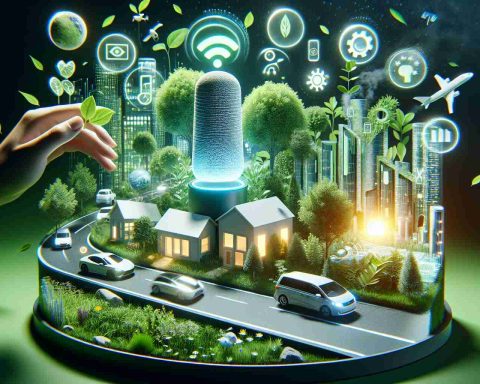By 2050, the global population is projected to rise to 9.7 billion people, posing significant challenges to food production amidst climate change and rapid urbanization. Considering this, experts suggest the urgent need to reevaluate agricultural systems to establish more efficient and resilient solutions.
Innovative techniques, such as indoor farming utilizing artificial lighting, present a viable alternative less susceptible to climate variability. Despite their benefits, these systems demand substantial energy and resource management to ensure sustainability. A prominent engineer from Cornell University emphasized the inadequacy of current environmental control systems in greenhouses.
Researchers are now investigating the integration of artificial intelligence (AI) to enhance resource optimization. Experiments conducted in various U.S. cities and international locations, including Reykjavik and Dubai, have shown that AI can significantly reduce energy consumption in producing fresh salad greens. Instead of relying on outdated methods, AI technology has cut energy usage from 9.5 to 6.42 kilowatt-hours per kilogram of lettuce grown.
The AI systems demonstrated remarkable adaptability to local conditions, illustrating the potential for tailored solutions. In warmer climates, energy use was lowered to 7.26 kilowatt-hours per kilogram, compared to 10.5 kilowatt-hours without AI assistance. By optimizing ventilation and lighting cycles, these systems create the ideal environment for plant growth while conserving energy.
This groundbreaking study highlights the role of AI in making food production sustainable and less carbon-intensive. As these intelligent systems evolve, they promise to redefine agricultural practices, aligning them with the pressing demands of population growth and environmental preservation.
The Future of Food Production: Harnessing AI for Sustainability
As the global population is anticipated to reach approximately 9.7 billion by 2050, the pressure on food production systems intensifies. While the previous discussions have focused on AI’s role in enhancing indoor farming practices, it is crucial to explore additional dimensions of AI’s application in agriculture and the considerations surrounding its proliferation.
What are the key benefits of using AI in food production?
AI technology offers numerous advantages in agriculture, including increased efficiency, reduced waste, and optimized supply chains. Precision agriculture utilizes AI-driven data analytics to monitor crop health, soil conditions, and weather patterns, enabling farmers to make informed decisions that mitigate resource waste and maximize yield. For instance, AI tools can predict irrigation needs, minimizing water usage and preserving vital resources in arid regions.
What challenges does AI face in agricultural integration?
Despite the transformative potential of AI, several challenges must be addressed for widespread adoption. One significant concern is the digital divide; smallholder farmers in developing nations may lack access to the technology and training necessary to leverage AI effectively. Additionally, the initial investment costs of AI systems can be prohibitive for many farmers, particularly those already struggling with financial viability.
Are there controversies surrounding AI in food production?
The integration of AI in agriculture raises ethical and regulatory questions. As AI automates processes, there is concern about job displacement in rural communities. Furthermore, the reliance on technology could lead to increased centralization of food production, threatening food sovereignty and the diversity of local agricultural systems. Issues of data ownership and privacy also surface, particularly regarding farmers’ data being collected and utilized by corporations without adequate consent or compensation.
What are the environmental implications of AI in agriculture?
AI’s potential to optimize agricultural practices can significantly reduce carbon emissions and resource inputs. For instance, by utilizing AI to predict pest outbreaks, farmers can apply pesticides only when necessary, reducing chemical runoff into ecosystems. However, it is essential to recognize that AI’s efficiency must be balanced with eco-friendly practices; over-reliance on technology may lead to unintended consequences, such as monoculture farming and loss of biodiversity.
What are the advantages and disadvantages of AI in food production?
The advantages of integrating AI in food production include:
– Efficiency: AI can enhance productivity and reduce waste.
– Resource Management: Precision agriculture can optimize water and nutrient use.
– Sustainability: AI applications can lower carbon footprints and improve environmental stewardship.
Conversely, disadvantages include:
– Accessibility: High costs and technology gaps can hinder adoption among smallholder farmers.
– Job Displacement: Automation may lead to job losses in traditional farming sectors.
– Dependence on Technology: Over-reliance on AI might impact farmers’ traditional knowledge and practices.
In conclusion, the future of food production entails a delicate balance between embracing AI innovations and addressing the associated challenges and controversies. To ensure sustainable practices that support both the environment and farmers worldwide, stakeholders must advocate for equitable access to technology, ethical frameworks, and inclusive policies.
For further insights into sustainable food production and agricultural technologies, you can visit Food Tech Connect and AgFunder News.
















